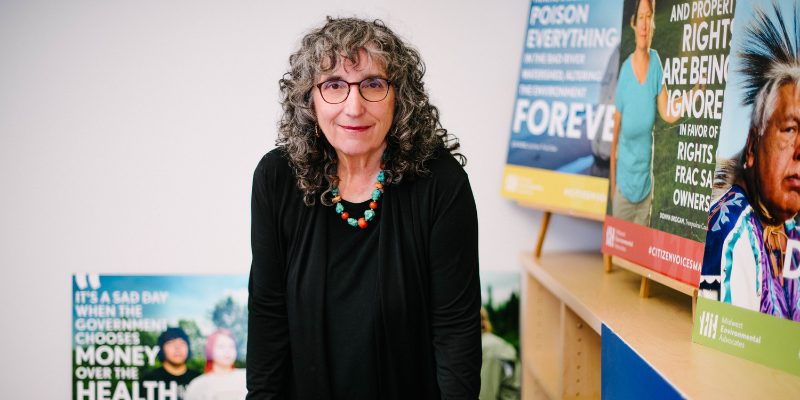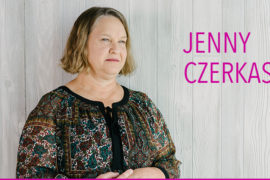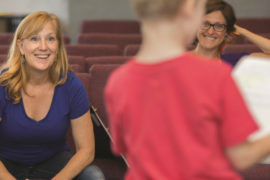By Nikki Kallio | Photography by Hillary Schave
When Dr. Susan Davidson, who specializes in high-risk pregnancies and fetal medicine, began seeing more women with babies carrying a very specific type of birth defect (gastroschisis, which causes a hole in the fetus’s abdominal wall) — it caught her attention.
“I saw more of this gastroschisis than I thought I should,” recalls Dr. Davidson, who practiced at SSM Health/Dean Medical Group. “It’s supposed to be one in 15,000, and there’s about 65,000 births in Wisconsin a year.”
That made her start asking questions about what is actually known about birth defects in Wisconsin. “It turned out that our registry wasn’t very good,” she says. About the same time, a medical journal article linked the herbicide Atrazine to gastroschisis.
“[The article] didn’t confirm, [but] it didn’t not confirm … it was like, ‘Oh, wow, maybe this is something real,’” she muses.
In 2001, Dr. Davidson attended a meeting at UW-Madison sponsored by the Wisconsin Environmental Health Network (WHEN). “It changed my life,” she said. At that meeting, she had lunch with people from the Program on Reproductive Health and the Environment (PRHE) at UC-San Francisco.
“They said, ‘Look, you have passion. Train yourself, and get out there, and talk, and advocate.’”
That’s what she did. After Dr. Davidson’s clinical work ended in 2019, she focused her expertise as a public health advocate for a number of organizations, including the Wisconsin Environmental Health Network (WEHN), an advocacy group led by a half-dozen medical professionals, and Midwest Environment Advocates (MEA), a nonprofit environmental law organization where Dr. Davidson serves as president of the board.
MEA works directly with community groups on environmental issues that impact human health. Dr. Davidson views environmental health issues as nonpartisan. “Everybody has an interest in healthy babies, and healthy mothers,” she said.
“It’s about raising our future, and that we really need the smartest, healthiest people we can get, so that we can solve the complicated problems that are before us.”
When Dr. Davidson talks to new medical students, “a lot of it is about activism and how to be a physician activist, but also respecting people’s time [at stages] in their life,” she says. “When you have little kids and you’re trying to work, you may only be able to do a teeny bit of activism. Then when you retire — people live long now — there’s a lot of ‘gray power’ around … you want to help the next generation do it.”
While Dr. Davidson also embraces a balanced life in retirement, she remains passionate about sharing her time and attention to environmental health advocacy.
“I see it as our future. If I have the time, expertise, and the will to make a difference in everybody’s future, why wouldn’t I want to?” she says. “It’s really important.”



